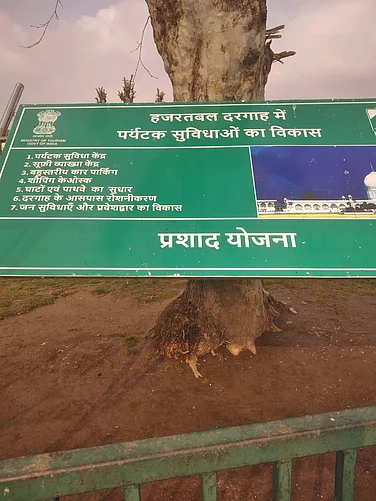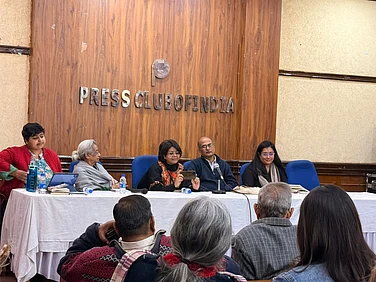FEAR of the law is pushing former Tamil Nadu chief minister J. Jayalalitha to turn to the courts for relief. In the last two weeks, the AIADMK general secretary has become the star litigant in Madras, filing writ after writ to protect herself from imminent arrest for alleged economic offences committed during her five-year tenure. Now she has approached the courts to prevent the takeover of her party by her foot soldiers-turned-betrayers.
In her latest writ, filed on August 16, the respondents were her erstwhile cabinet members. In her petition in the sessions court, the former chief minister contended that all the expelled AIADMK leaders should be restrained from using the party name, flag and symbol. She also prayed that they should be stopped from convening a parallel general body of the party since it was illegal and against the AIADMK constitution.
Jayalalitha's argument was that leaders like S.D. Soma-sundaram, S. Muthuswamy, S. Kannappan, C. Aranganayagam and Kulathaivelu had been expelled for indulging in anti-party activities. And that this move was endorsed by all the headquarter secretaries. After a disaster at the hustings, Jayalalitha has her back to the wall and the courts seem to be her last hope to save herself and her party.
As for the investigations into her sources of income by Latika Saran, DIG, Vigilance and Anti-Corruption, ordered by principal sessions judge (PSJ) P. Ramamurthy, she did get a significant reprieve by extracting a stay order from Justice Shivappa of the Madras High Court. Kapil Sibal, senior counsel for Jayalalitha in all the cases she has filed so far, contends that the order was the result of a private complaint filed by Janata Party president Subramanian Swamy and that the sessions judge acted on it even before determining whether the complaint was maintainable or not. "Further, how could the PSJ name an officer to conduct the investigation? The whole investigation is illegal," Sibal argued. The case has been posted for further hearing on August 30.
But Swamy has not quite given up. In a private complaint filed on August 16 before the PSJ in the coal import case, allegedly involving a foreign exchange fraud of Rs 700 crore, he has named Jayalalitha among others. Judge Ramamurthy has ordered the DGP to form a special team to probe the scandal and report before the court on or before October 16. The judge has also advised the DGP to entrust the case to the CBI should he feel that the federal agency can handle the task more effectively.
In her other application before the high court, in which Jayalalitha had sought a blanket anticipatory bail, she did a turnaround when she pleaded for a 10-day notice in the event of her arrest by the Central or state government agencies. Irritated by this constant volte face, Justice Shivappa retorted: "Why this academic acrobatics? Mention the list of cases in which the petitioner apprehends arrest. The petition has to be complete." When Sibal agreed to rectify the defects and file a fresh petition, the judge adjourned this case also to August 22.
But Jayalalitha has not been very particular in following court procedures. Following the newsreport on August 10, that the CBI had registered a case against her on the charge that she received $300,000 under the Finance Ministry Immunity Scheme, Jayalalitha managed to get an interim bail. The chief justice has now suspended court officer Thyagarajan and deputy registrar (judicial appellate side) for not following normal court procedure before entertaining Jayalalitha's application for anticipatory bail on Saturday, a holiday.
The application was numbered without the prior approval of the chief justice and Justice Shivappa had passed an interim order at his residence that Jayalalitha should not be arrested until further orders. This is the first instance in the last 10 years where senior court officials have been suspended for not following court procedure. The suspension is likely to deter some of the court employees who were appointed during her regime to bend rules to accommodate her interests.


























